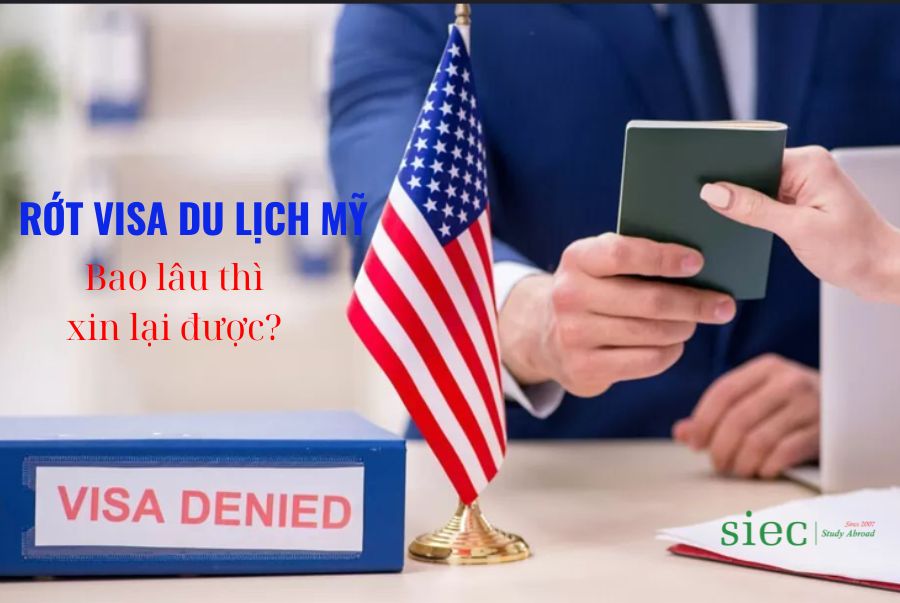Being denied a U.S. visa is an unpleasant experience, but it doesn’t mean you won’t have another chance to travel or study in the United States. In this article, we will explore the necessary waiting period before reapplying for a U.S. visa after a denial and the steps you can take to improve your chances of approval the next time.
Common Reasons for U.S. Visa Denial
Before delving into the reapplication process, let’s review some common reasons for U.S. visa denials:
Insufficient Financial Proof
You need to demonstrate that you have sufficient funds to cover your expenses during your stay in the U.S.
Unclear Purpose of Travel
Consular officers need to be convinced that your travel purpose is legitimate and that you will return home after your stay.
Lack of Ties to Vietnam
If you cannot prove strong ties to Vietnam (such as family, stable employment, or property), the officer might suspect you won’t return.
How Long After a U.S. Visa Denial Can You Reapply?
There is no specific waiting period for reapplying for a U.S. visa after a denial. You can reapply at any time. However, it is crucial that you address the issues in your initial application to increase your chances of approval.
Factors to Improve Before Reapplying for a Visa
Strengthen Your Financial Documents
Ensure that you have sufficient documentation to prove your financial stability, including bank statements, asset ownership papers, and other relevant documents.
Clarify Your Purpose of Travel
Prepare thorough documentation related to your travel purpose, such as invitation letters, detailed travel itineraries, or study plans.
Enhance Ties to Vietnam
Demonstrate strong ties to Vietnam by providing employment contracts, property deeds, or family-related documents.
Steps to Prepare for Reapplying for a U.S. Visa
1. Review Your Previous Application
Carefully review your previous application and identify any weaknesses. Improve and supplement the necessary information.
2. Prepare New Documentation
Gather additional financial documents, travel plans, and proof of ties to Vietnam. Each time you reapply, aim to provide more convincing evidence.
3. Fill Out a New DS-160 Form
Fill out a new DS-160 form with updated and accurate information. Ensure you do not miss any critical details.
4. Pay the Visa Application Fee
Pay the visa application fee again and keep the receipt for future reference.
5. Schedule a New Interview Appointment
Schedule a new interview appointment at the U.S. Embassy or Consulate. Prepare yourself mentally and have convincing answers for the interview.
6. Prepare for the Interview
Be well-prepared for the interview, from your attire to your responses to questions. Be confident and truthful in all the information you provide.
Tips from Successful Applicants
Focus on Your Strengths
Remember that every application has its strengths and weaknesses. Focus on your strengths and highlight them in your application.
Be Confident and Honest
Confidence and honesty during the interview are key to convincing the consular officer. Avoid hiding or fabricating information.
Seek Professional Help
If possible, seek help from study abroad consultants or immigration attorneys for specific and professional guidance.
Conclusion
A U.S. visa denial is not the end of your dream. With careful preparation and improved documentation, you can reapply and succeed. Consider the initial denial as a valuable learning experience to refine and enhance your application. Good luck and success in your next visa application!
4o



